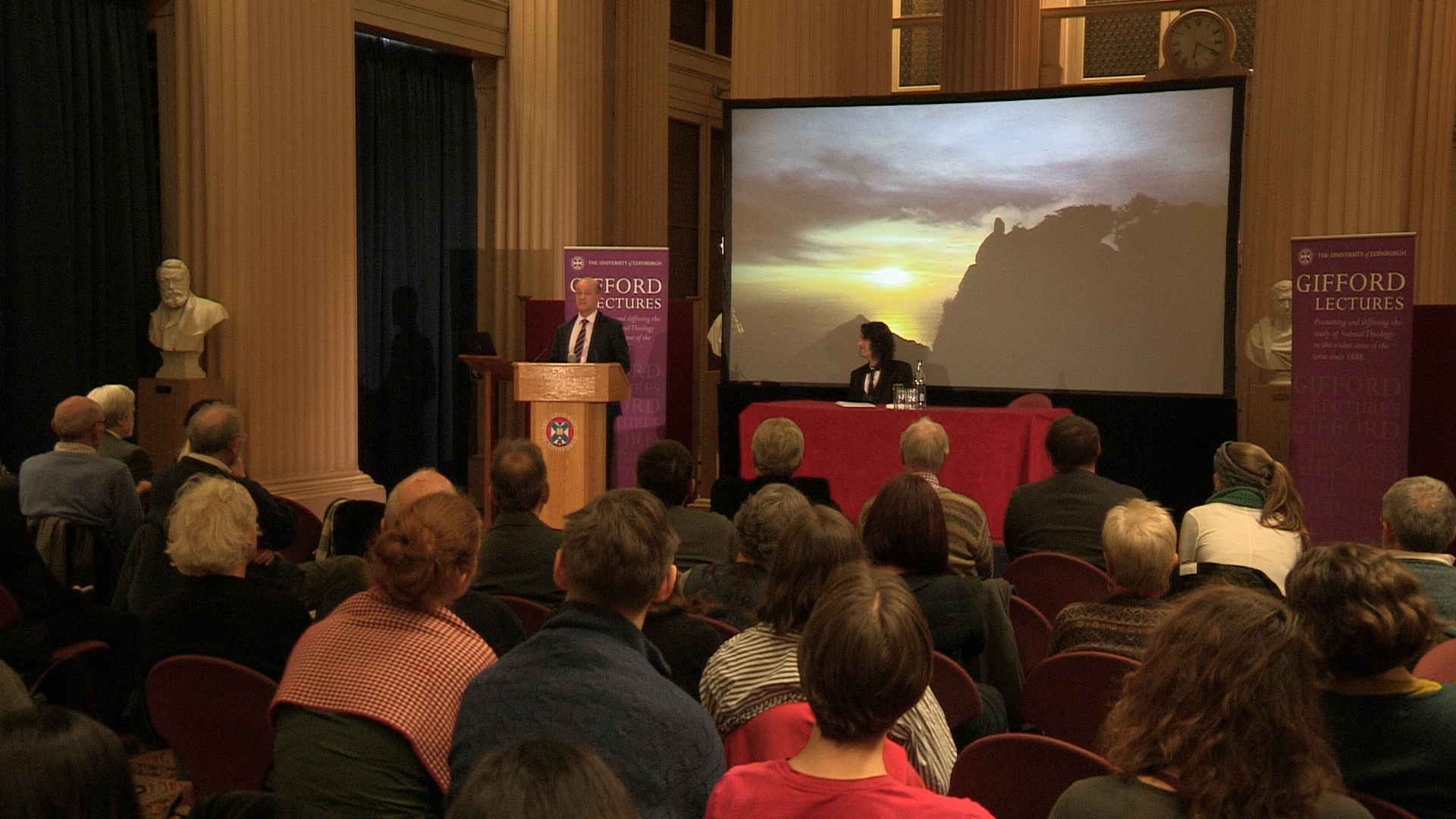Vote of Thanks
Below is the vote of thanks that Professor David Fergusson gave at the conclusion of Professor Agustin Fuentes’ 2018 Gifford Lectures at the University of Edinburgh. Fergusson is Professor of Divinity, Principal of New College, Chaplain to the Queen in Scotland, and a former Gifford Lecturer. His vote of thanks can be found below.

2018 Gifford Lectures Vote of Thanks
– David Fergusson
On behalf of the University of Edinburgh, it’s my pleasant responsibility to offer a vote of thanks to Professor Fuentes at the end of this fine series of Gifford Lectures. Triumphing over our snow and rain, he has stimulated us to further reflection on the perennial and pressing question of what it is to be human. What might we take away from these lectures?
- Despite the persistent temptation to think otherwise, there is no single defining characteristic or physiological feature or practice that sets us apart from other animals. Perennial attempts to isolate one function or capacity will inevitably lead to distortion. Many of the habits, practices and forms that mark our culture were shaped by processes already evident hundreds of thousands of years ago in our distant ancestors.
- Body and mind, society and the physical environment, the individual and the group, nature and nurture, the brain and the body, belief and practice – all these are intertwined and constitutive of one another in an array of complex and reversible causal processes. These should not be set apart from each other, or registered merely in a unilateral active-passive relation.
- Though we take our bearings from what happened long ago, evolution continues – always a work in progress, it never reaches a stasis or point of arrival. As our evolutionary history proceeds, so our world itself is changed for better or worse. Tonight’s lecture has alerted us to some disturbing consequences of past trajectories.
- Within the complex processes that we describe as culture, meaning-making beliefs and representations of the transcendent are embedded in the ways that homo sapiens has lived through the ages. If this is the case, then religion is a kind of second nature, not in its large institutional forms but in diverse practices, beliefs and patterns of association. This does not render any particular faith-based claim either true or false, but it does suggest that being religious cannot easily be detached or separated from the ways that the human species lives.
- We cannot and should not live without beliefs, whether these take a religious form or not. Our most fundamental convictions require critical inspection; on occasion, we should be prepared to adjust them.
In these and other ways, Professor Fuentes’ lectures have challenged us to reframe how we approach our humanness, how we see religion in relation to it, and the constitutive role of belief. I find it hard to imagine a series so readily fulfilling Lord Gifford’s intention. Fuentes’ holistic and integrated account has displayed an astonishing familiarity with the latest findings of several disciplines. There has been much to ponder here and there will be more when he publishes this body of material.
But I want to end by thanking him not only for the content of these lectures but for the way in which he has presented them. I have seldom heard lectures delivered with such zest, clarity and fluency. He has prepared his material carefully, executed it with much elegance, and provided some arresting visual images. He has also engaged with grace and insight the many questions and comments that have been offered.
It’s been a memorable series. We thank Agustin Fuentes and his wife Devi Snively for their visit to Edinburgh, and we wish them well on their return to Notre Dame. Drinks are now served at back of the hall – you can meet with Professor Fuentes there. But before doing so, let us again show our collective appreciation of these 2018 Gifford Lectures.




Recent comments